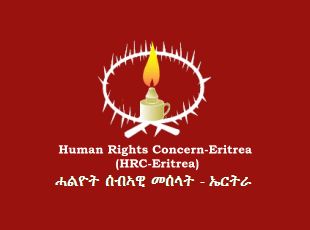Deception at the expense of the starving
 How far will the Eritrean Government go in its attempts to deceive the world? While its people are dying, instead of attempting to find any solution to this very real problem it concerns itself in an article published on their website on 23 September 2009: http://www.shabait.com/staging/publish/article_0010494.html - a feeble attempt at discrediting anybody who reports the truth, which is an offence itself in Eritrea which could lead to imprisonment and even death. Since the BBC and the UN’s World Food Programme are not subject to censorship and reprisals from Eritrea’s dictator, they publish the truth.
How far will the Eritrean Government go in its attempts to deceive the world? While its people are dying, instead of attempting to find any solution to this very real problem it concerns itself in an article published on their website on 23 September 2009: http://www.shabait.com/staging/publish/article_0010494.html - a feeble attempt at discrediting anybody who reports the truth, which is an offence itself in Eritrea which could lead to imprisonment and even death. Since the BBC and the UN’s World Food Programme are not subject to censorship and reprisals from Eritrea’s dictator, they publish the truth. There are many other sources, including those in Eritrea, who have witnessed the real situation, the very real drought which has led to famine and starvation, the begging on the streets of Asmara -an act which has been criminalised- and the random relocation of farmers whose land has been appropriated by the government without compensation to places which have not in any way been adapted for its new, bewildered, and hungry inhabitants.
Here is how our sources from Eritrea describe the current situation on the ground:
“The humanitarian situation in the country is alarming. The majority of Eritrean households are suffering from hunger and do not have the means to cope with the effects of drought and other economic and social problems. This has caused the population to suffer from malnutrition - the high number of severely malnourished children referred to the health facilities for therapeutic feeding is a clear indicator of the seriousness of the humanitarian situation. The reduction in the quality and quantity of food consumed is one of the coping strategies adopted by the affected households. And the households resort to engaging in begging activities when their coping strategies are completely exhausted, i.e. when the only meager resources are being exhausted and the people are in a situation where they have no means for accessing food at all, at which point they resort to begging activities.”
“The government has resettled thousands of households from Zoba Debub, Anseba and Northern regions in the Gash Barka region, mainly in Tesseney subzones, within 2-3 weeks time between the last week of June until mid-July 2009. This move by the government is a response to the urgent food need of the people. However, first the households were deceived into registering in the hope that they would get food aid, and finally they were forcefully moved from their respective villages to be resettled in other areas. As no food, shelter and other basic needs are being provided in their resettlement areas, their conditions have further worsened leading to further hunger and disease. There are many reports of death among the children of the resettled families as the result of famine and disease. As a result, some households have escaped from the camps; some of them to Sudan and others have returned to their respective villages. But the most appalling thing is that many children of these families have being forced to engage in begging activities in the surrounding villages/towns such as Tesseney.”
There is a confirmed report that in August 2009 alone about 300 people, of all ages, died among those people forcefully resettled around the Aligeder area. The cause of death is mainly malnutrition and associated illnesses. Many more are also reported to have died in the other resettlement areas. The scale of the death incidence has even forced the Ministry of Health both at regional and national level to form a special unit to study what has caused these deaths. But its formation was not announced and the news about the deaths has not been broadcasted. Instead, the Eritrean TV broadcast had shown a series of fictitious interviews conducted with those who were forcefully resettled telling the public that they are happy and living in good conditions.
The article published on the Eritrean Government’s website on 23rd September would have the world believe that this, and many other similar instances, is a ‘fantasy’; it would have the world believe that the BBC in its Arabic Programme has some kind of agenda, or ulterior motive, in reporting the truth. When the BBC refused to allow a government spokesperson to disseminate untrue propaganda, this was characterised as part of a ‘political smear campaign’ and even as ‘illegal’ which is sadly ironical coming from a government that systematically breaks international and national laws, and has published a misleading official article to deny the truth, that its own people are dying of hunger and that it, the government, and nobody else, is responsible though they refuse to be held accountable. In fact, if anyone is creating a fantasy, one only has to read anything the Eritrean government publishes on its website; they lie about everything.
Human Rights Concern –Eritrea
London , U.K.
29 September 2009


![[AIM] Asmarino Independent Media](/images/logo/ailogo.png)